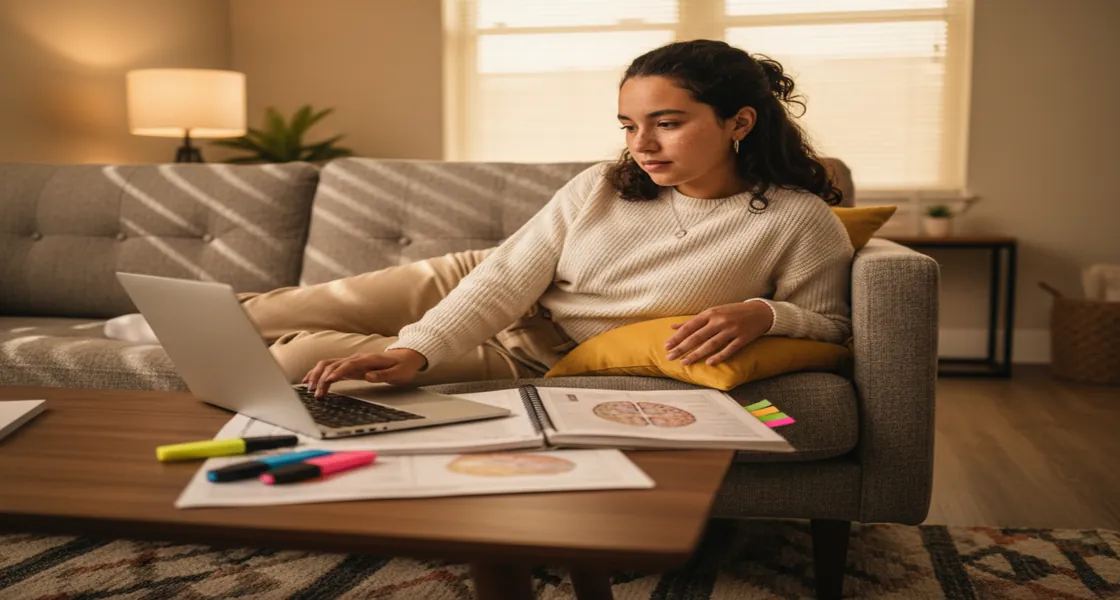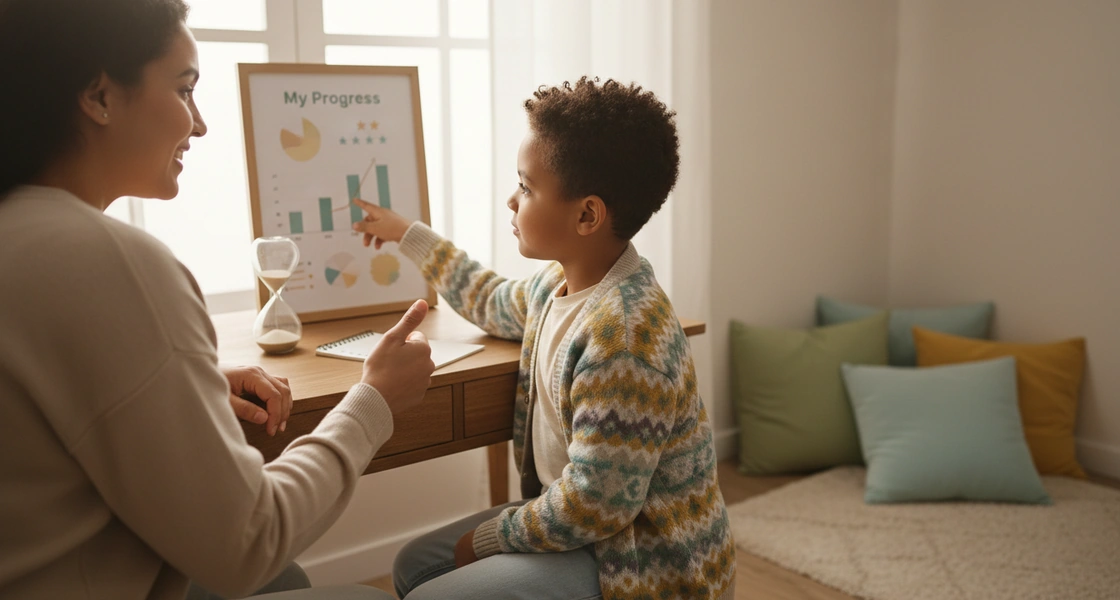How does a community run—and where do we fit in? Understanding how government works is more than just a school subject; it’s a way for kids to see how laws are made, how people work together, and how they can have a voice in the process.
Civics truly stick when children don’t just read about it, they live it. From mock elections and debates to journaling and role-playing, government becomes more meaningful when it's active, hands-on, and personal, just like it is in the real world!! At Outschool, families can find live, teacher-led classes that turn big ideas into interactive experiences that inspire learners to get involved and think deeply.
Laying the foundation: Core concepts of Government
Tackling teaching your child about government might feel like a big, complicated topic, but at its core, it’s about how people work together to make rules and keep communities running smoothly. Children can begin to understand government by thinking about their everyday lives: Who decides the rules around them? That’s where the government comes in; it helps groups of people make choices that keep things fair and organized for everyone.
As children grow, they can begin to explore how government is structured and why it matters. They’ll learn about the different levels - local, state, and national - and the roles people play, from mayors to judges. They'll also start to understand the responsibilities of citizenship, like voting and speaking up for what’s right. These aren’t just facts to memorize, they’re ideas that connect directly to everyday life.
Innovative strategies for teaching government
Teaching government can be surprisingly engaging when connected to real-life situations and hands-on experiences. Here are some ideas you can try out in your homeschool environment:
- Set up mock elections: Have your child design campaign posters, write short speeches, and hold a family or homeschool co-op vote on a fun topic, like choosing a book to read aloud or picking a theme for the week.
- Create a mini-government with family or peers : Assign roles like mayor, judge, or council member to family members or homeschool peers. Work together to make simple household or group rules and vote on fun decisions like what to bake or a special activity.
- Three branches role-play: In a small group or co-op setting, assign roles representing the legislative, executive, and judicial branches. Together, propose and debate a household or group “law,” with each branch participating in passing or rejecting it.
- Create a Mini Congress: Students write and debate bills about topics that matter to them. Choose age-appropriate news stories and discuss how the government is involved and how decisions affect people's lives.
- Run a mock trial or debate: Assign roles like judge, attorney, and jury to family members or peers. Re-create a historical case or debate a real policy issue to explore how arguments are structured and decisions are made in a civic setting.
- Design a campaign project: Encourage your teen to create a whole campaign for a fictional candidate or issue. They can write a platform, design posters or social media posts, and present their ideas to the family or a homeschool group.
When children can step into roles, ask questions, and explore how the government works in active and personal ways, the learning sticks. These early experiences help them build confidence, curiosity, and a stronger understanding of how they can make a difference in their communities now and in the future.
Engaging students in government studies
Once your learner has a solid grasp of the basics, government studies can truly come to life. This is the perfect time to dive deeper, spark curiosity with big questions, and explore creative ways to connect real-world events to what they're learning in meaningful, relevant ways.
- Simulate a town hall meeting: Have students take on roles as local officials, community members, or activists. They can present proposals, ask questions, and respond to community concerns. It’s a great way to explore civic dialogue and local decision-making.
- Create a personal civics journal: Encourage students to keep a journal where they reflect on current events, government decisions, or their opinions on political issues. They can include sketches, headlines, or quotes that inspire them.
- Track a real bill in progress: Choose a real bill and follow it through the legislative process. Students can chart where it is, who supports or opposes it, and what impact it might have. They can even write a letter to their local government official on their opinion of the bill.
- Design a government infographic or poster: Use drawings, graphics, or digital tools to help students visually explain concepts like the three branches of government, the election process, or a landmark court case.
- Explore civic action projects: Help students identify an issue they care about and brainstorm ways they could get involved, like writing a letter to an elected official, creating a public awareness flyer, or starting a petition.
- Play interactive civics games: Educational games like iCivics, Branches of Power, or Election Night reinforce government concepts through play. These tools let students experience real-life civic roles in a fun, low-pressure way.
As students grow in their understanding of government, this is the moment to hand them the reins. Let their interests guide the way. Whether they’re diving into current events, designing campaigns, debating big ideas, or turning research into creative projects. When learning feels personal and purposeful, it builds confidence and helps them see exactly how they can make an impact. That’s when government becomes more than a subject, it becomes a tool for real-world change.
FIRST MONTH FREE!
Get support that meets kids where they are.
Learn moreTop resources for teaching government
Finding engaging resources can make teaching government at home much more manageable and fun. These options combine traditional materials with interactive platforms to help bring civics to life in meaningful, engaging ways.
- iCivics: Free games, lessons, and printables help students understand how the government works. Great for middle and high schoolers, especially those learning about lawmaking, civil rights, and civic responsibilities through interactive play.
- BrainPop - US Government: Features over 30 modules with connected text, videos, quizzes and more is ideal for upper elementary to middle school students. Includes interactive activities to engage children and deepen their understanding.
- Outschool: Provides live, small-group classes on civics and government for all age levels. These interactive lessons, led by experienced educators, help learners explore real-world topics and develop a deeper understanding of how government affects their lives.
- Scholastic “We are People” civics workbooks: Designed for elementary and middle school learners, these print resources include short readings, vocabulary practice, and activities introducing students to government structure and citizenship in a simple, approachable format.
- Local events: Connect with your local government through virtual field trips and youth programs. Many city councils offer behind-the-scenes tours, Q&A sessions with officials, and hands-on civics projects perfect for young learners.
With so many helpful resources, you don’t have to teach government alone or from scratch. The key is finding what clicks for your child and building from there.
Frequently asked questions about teaching government
Teaching government can open up exciting opportunities for learning and discussion with your child. Here's guidance on common questions about teaching civics and government concepts in ways that match your child's unique learning style.
What's the best age to introduce government concepts?
Every child's readiness differs, but many parents succeed starting with simple concepts around age 8. Young kids can understand ideas like fairness, rules, and voting simply, while older students can dive deeper into topics like elections, branches of government, and civic responsibility. The key is keeping it age-appropriate and relatable.
I'm not a political expert - how can I confidently teach government?
Your life experience is a valuable teaching tool! When shopping, discuss how sales tax supports community services. During election season, share your voting experience. These everyday moments create natural learning opportunities that build your child's understanding of civic participation.
What activities work well for different learning styles?
Visual learners might enjoy creating colorful charts of government branches or watching educational videos. Hands-on learners can shine in mock elections or city council role-play activities. For auditory learners, try podcasts about government or hosting family debates about community issues.
How can I tell my child is making progress in understanding the government?
Look for exciting milestones, like when your child asks questions about news events or suggests solutions to community problems. Celebrate small wins, whether explaining the voting process to a sibling or writing a letter to a local representative about a neighborhood issue.
Building informed and active citizens
Teaching your child how the government works isn’t just about facts, it’s about sparking awareness, opening up thoughtful conversations, and equipping them with the tools to engage in their world. With every activity, question, and real-world connection, they begin to see themselves not just as students, but as active participants in something bigger than themselves.
As you explore these topics together, remember: lasting understanding comes from consistent, meaningful exposure. And at Outschool, that journey doesn’t have to stop at home. With dynamic, age-appropriate classes that make government come alive you can empower young minds to think critically, speak up, and get involved in shaping their communities.






.svg)
.svg)







